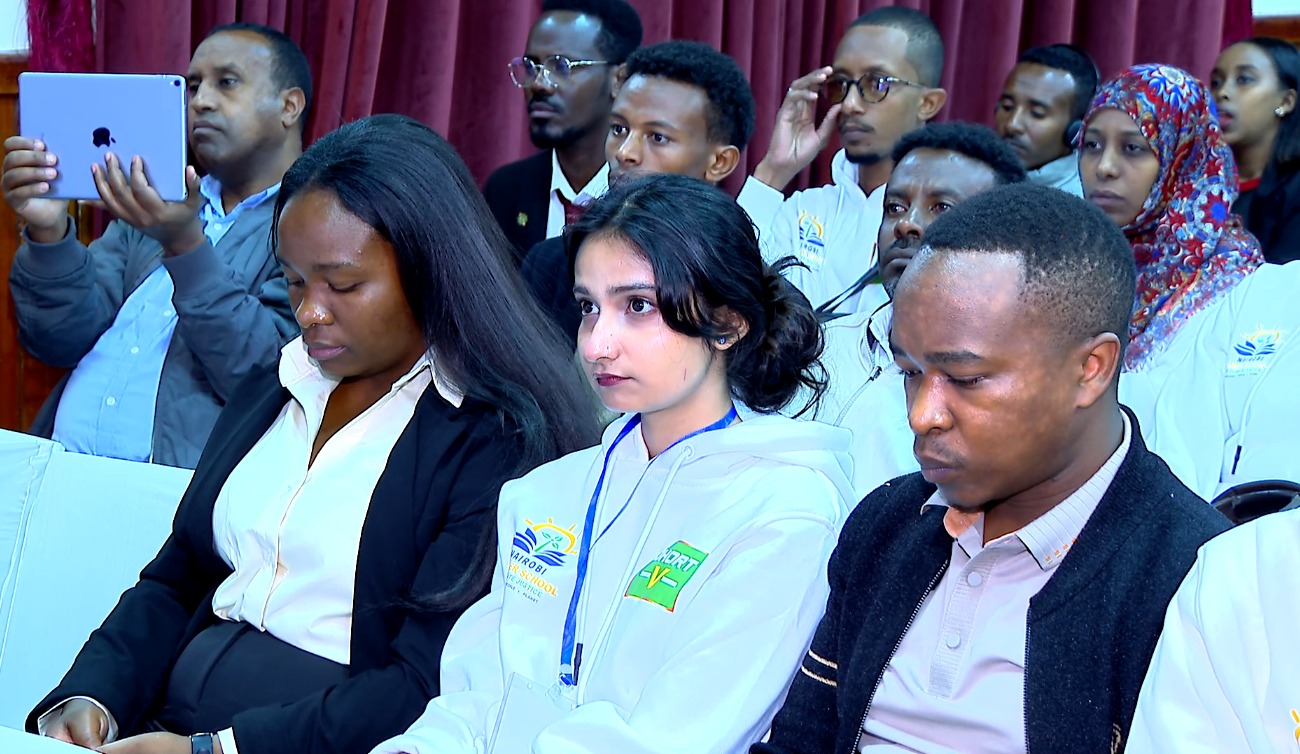Global Youth Gather for Nairobi Climate School Ahead of Africa Climate Summit in Addis - ENA English
Global Youth Gather for Nairobi Climate School Ahead of Africa Climate Summit in Addis

Addis Ababa, August 25, 2025 (ENA) -- The Pan-African Climate Justice Alliance (PACJA) has launched the fifth edition of the Nairobi Summer School on Climate Justice (NSSCJ) at Addis Ababa University, drawing participants from more than 60 countries.
This year’s program is being held in Ethiopia’s capital as a strategic prelude to the Second Africa Climate Summit (ACS2), which will be hosted from September 8 -10, 2025.
The NSSCJ equips young people with knowledge, skills, and networks to engage in high-level policy discussions, ensuring their voices are heard at the upcoming continental gathering.
Although independent of the official ACS2 agenda, hosting the school just before the summit is a deliberate move to amplify youth perspectives. Similar forums are often convened by civil society and youth groups ahead of major global and continental events to finalize positions and influence negotiations.
The program provides a platform for intergenerational dialogue, featuring young climate activists as well as prominent speakers from academia, government, and international organizations.
In her keynote address, Minister for Planning and Development, Fitsum Assefa, underscored the moral urgency of climate justice.
“The call for climate justice is not political, it is moral, urgent, and non-negotiable,” the minister said, adding, "This is why the call for climate justice is not political, it's moral, it's urgent, and it's non-negotiable".
Fitsum noted Africa’s dual role as both a frontline victim of climate change and an emerging leader in global climate action.
Highlighting Africa's leadership, she added, "We want to send a message that Africa is not a victim, but also a leader, a partner, a driver of global climate ambition."
Fitsum Assefa underscored that while "Africa is warming faster than the global average, and climate extremes are costing our economies between 2 percent and 5 percent of GDP every year,"
‘‘Communities across our continent, from the country's drought-stricken lowlands to flood-prone river basins, are carrying the burden of a crisis they do not create,’’ she said, adding, ‘‘Africa not contributing significant emissions, probably less than 4 percent, but bearing the costs of climate change more than proportionately.’’
‘‘This is why the call for climate justice is not political, it's moral, it's urgent, and it's non-negotiable,’’ she added.
‘‘Ethiopia has long recognized the urgency of climate change, so in all our plans, policies, we have mainstreamed climate actions, we have a stand-alone climate resilient green economy strategy, long ago, long before the Paris Agreement was signed in 2011,’’ she elaborated.
Through the Green Legacy Initiative, launched in 2019 under Prime Minister Abiy Ahmed, Ethiopia has planted more than 48 billion seedlings, with a target of 50 billion by 2026.
The program has restored degraded land, reduced soil erosion, improved food security, created green jobs, and rehabilitated over 15 million hectares through watershed management and area enclosures.
Mithika Mwenda, Executive Director of PACJA, noted the strategic importance of holding the NSSCJ in Addis Ababa at this moment.
He stated, "The Nairobi Summer School is not just about education; it's about building a movement. By bringing our young leaders to Addis Ababa on the eve of the Africa Climate Summit, we are ensuring they are at the table, equipped to shape the future of climate justice and directly influence continental decision-making."
"Africa is actually bulging in these innovations, but that has never been tapped, mostly coming from the young people," Mwenda added.
The two-week program, running from August 25 to September 4, 2025, will immerse participants in a transdisciplinary curriculum, covering topics from climate finance to grassroots mobilization.
The NSSCJ's presence in Addis Ababa demonstrates a commitment to a just and sustainable future through intentional collaboration and youth leadership, ensuring their message is heard just as African leaders convene for the ACS2.